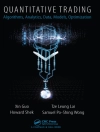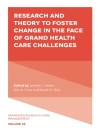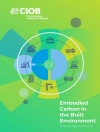Modern macroeconomics has been based on the paradigm of the rational individual capable of understanding the complexity of the world. This has created a very shallow theory of the business cycle in which nothing happens in the macroeconomy unless shocks occur from outside. Behavioural Macroeconomics: Theory and Policy uses a different paradigm. It assumes that individual agents experience cognitive limitations preventing them from having rationalexpectations. Instead these individuals use simple rules of behaviour. Behavioural Macroeconomics introduces rationality by allowing individuals to learn from their mistakes and to switch to the rules that perform better. It introduces the idea of endogenously generated "animals spirits" that drive the business cycle and are in turn influenced by it, and applies this model to shed new light on a number of important issues. It analyses the role of fiscal policy in stabilizing the economy while maintaining debt sustainability; expands the model to include abanking sector and show how banks amplify the booms and busts; and explains how animal spirits help to synchronize the business cycles across countries. The model set out in Behavioural Macroeconomics leads to very different policy implications from the mainstream macroeconomic model. It shows how policymakers have a responsibility to stabilize an otherwise unstable system.
Paul De Grauwe & Yuemei Ji
Behavioural Macroeconomics [PDF ebook]
Theory and Policy
Behavioural Macroeconomics [PDF ebook]
Theory and Policy
Compre este e-book e ganhe mais 1 GRÁTIS!
Língua Inglês ● Formato PDF ● Páginas 256 ● ISBN 9780192568359 ● Editora OUP Oxford ● Publicado 2019 ● Carregável 3 vezes ● Moeda EUR ● ID 8103416 ● Proteção contra cópia Adobe DRM
Requer um leitor de ebook capaz de DRM












